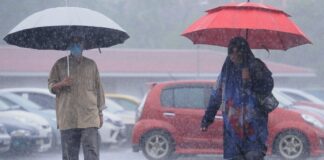PUTRAJAYA, Sept 8 — Malaysia registered 4,252,997 tourist arrivals in the first half of 2020, marking a decrease of 68.2% compared to the same period in 2019. Last year, Malaysia received over 13.3 million tourist arrivals from January until June.
For the first six months of 2020, the tourist expenditure recorded a total of RM12.5 billion, a decrease of 69.8% compared to RM41.6 billion received for the same period last year. Similarly, the per capita expenditure showed a decline of 5.3% from RM3,121.60 in 2019 to RM2,956.10 this year.
The top ten tourist generating markets were Singapore (1,541,820), Indonesia (702,082), China (401,285), Thailand (348,133), India (153,873), Brunei (135,593), South Korea (118,594), Japan (73,201), Australia (72,103) and Philippines (64,311).
Negative growth had been observed for tourists from every regional market namely short-haul market (-69.1%), medium-haul market (-69.0) and long-haul market (-58.8%) from January until June 2020.
In terms of the number of excursionists, or the daily visitors to the country, Malaysia recorded a total of 1,712,140 arrivals from January to June 2020, a decrease of 64.2% compared to 4,782,587 excursionists who visited Malaysia in the same period last year.
The significant drop in the number of tourists and excursionists is attributed to the closure of international borders in response to the spread of Covid-19 virus. After the World Health Organisation (WHO)’s declaration of Covid-19 as a pandemic on March 11, the government of Malaysia imposed Movement Control Order (MCO) barring entry of international tourists beginning March 18.
The effects of the pandemic on the tourism sector can be seen beyond the borders of Malaysia. According to the data from the Pacific Asia Travel Association (PATA), negative growth in tourist arrivals is not unique to Malaysia, as the neighbouring ASEAN countries including Thailand, Singapore, Vietnam and Indonesia recorded similar decrease due to the ban on international travel imposed to combat the pandemic in the respective countries.
















